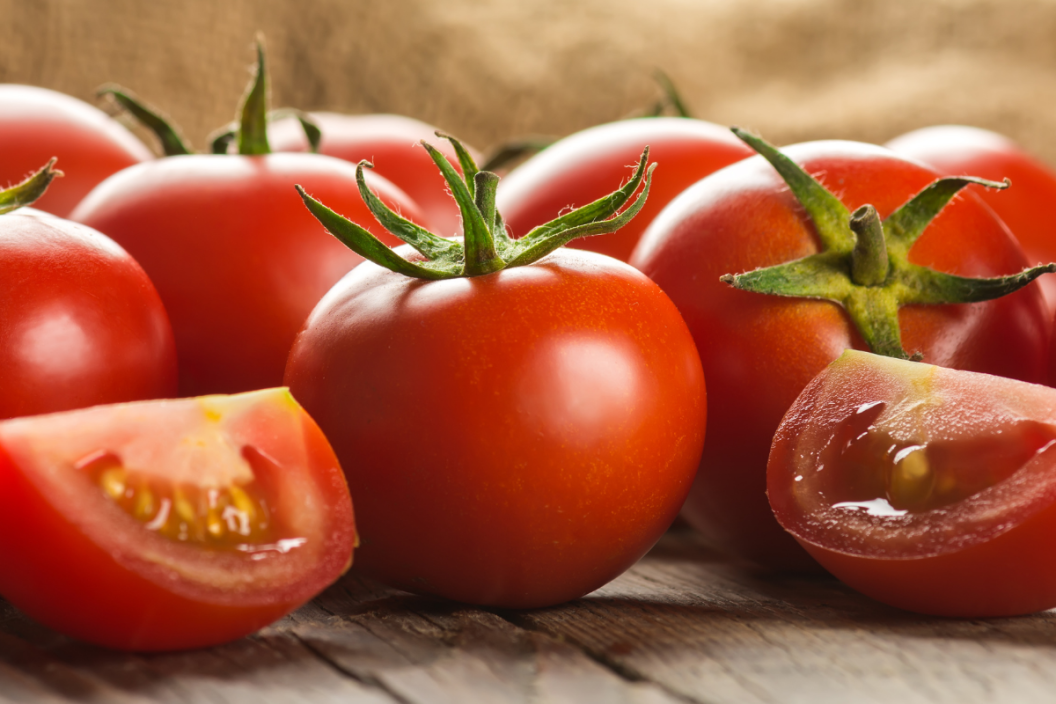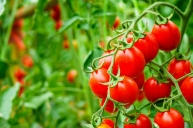The humble tomato plant. It's soft, juicy, savoury, and sweet, and a household ingredient for millions across the world. Cherry tomato plants decorate the porches of tomato lovers from New York to Texas, and ketchup is a favorite item at the grocery sture. While love for tomatoes is pretty universal, there is one question we all need answered: is the tomato a fruit or a vegetable? While you can find people who stand firm on both sides, let's look at the facts and history behind this vegetable, or well, fruit.
Characteristics of Fruit
If we want to be technical, Merriam Webster defines fruit as, "The usually edible reproductive body of a seed plant especially : one having a sweet pulp associated with the seed." To put this into plain terms, anything with a seed is a fruit. This makes sense, considering true fruits like watermelons, oranges, and apples all contain seeds.
If you ask a botanist they will tell you that botanically speaking, "a fruit is a ripened flower ovary and contains seeds." That puts a tomato's botanical classification firmly in the fruit category, given that this flowering plant produces fruit from those flowery parts of the plant.
But wait a second, what about things like pumpkins, zucchini, and green beans? No one has ever heard of or eaten a fruit salad made of those aforementioned ingredients. Technically, they could, as those are all correctly defined as fruits.
If your world isn't shaken up enough, let keep digging into what defines a vegetable.
Characteristics of Vegetables
According to The Spruce Eats, "... the definition of a vegetable is, any part of a plant that's edible, including the leaves, stems and roots...it certainly seems that the distinction between fruits and vegetables is not as clear-cut as we might like it to be."
Nutritionists define vegetables as plants low in sucrose. The fruit definition describes sweeter and fleshy botanical fruit as fruit.
To keep things as simple as possible, we can classify a vegetable as an edible plant including leaves, stems, and all edible parts, except for seeds. This can include roots and tubers, making turnips and even potatoes vegetables. Take that, french fry haters.
So Why Are Tomatoes Considered Fruits and Not Vegetables?
Luckily, for us regular folks, the tomato debate made it all the way to the U.S. Supreme Court. In 1893, the case of Nix V. Hedden legally classified tomatoes as good old veggies. Tomatoes were subject to an import tariff considering their status as a vegetable. The plaintiff argued that since the botanical definition is a fruit, that the tariff shouldn't apply.
Justice Horace Gray authored the opinion and basically said that tomatoes aren't considered fruit in the common household. They're more closely linked with vegetables served with dinner, as opposed to a fruit, which is generally associated with dessert.
To make things more ridiculous, both Tennessee and Ohio designate tomatoes as their state fruit, but New Jersey crowns them the state vegetable.
For all the reasons listed above, and because botanists reign supreme, tomatoes are considered a fruit, for now.




